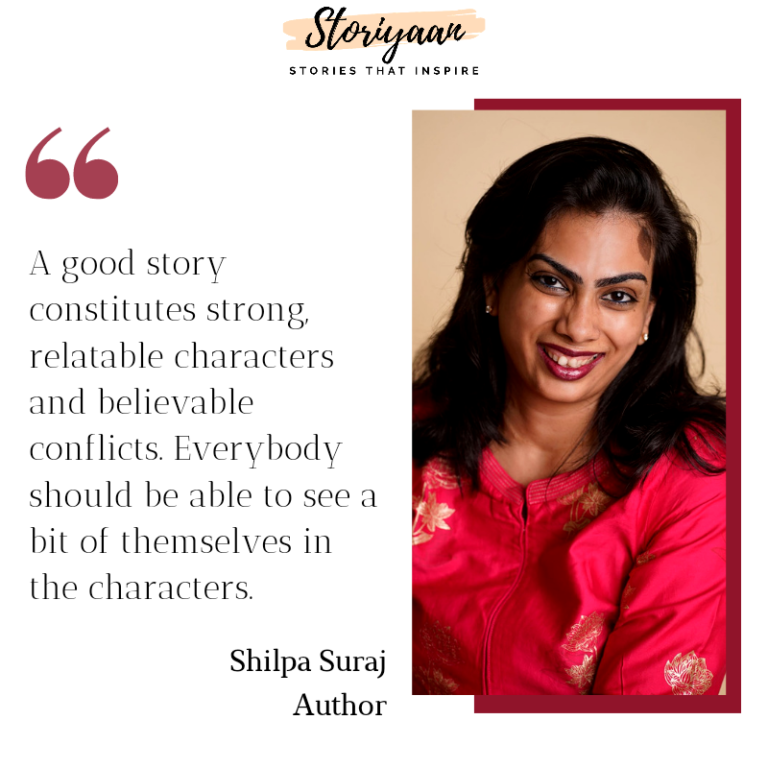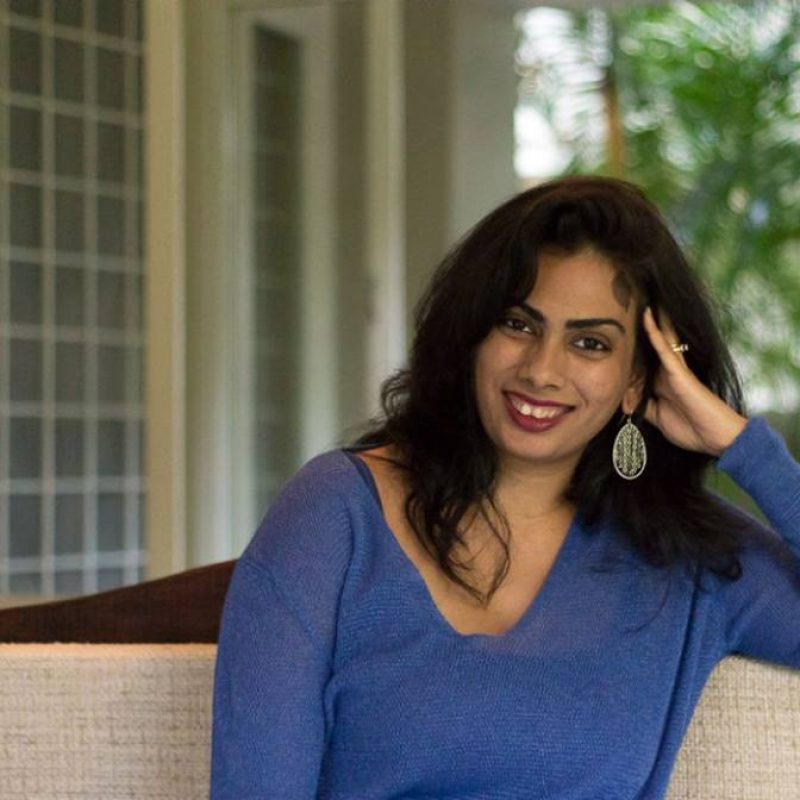Shilpa Suraj is an author and has written a collection of 7 books; she was also a panelist at the Women’s Writers Fest and New Age Literary Festival. She is a proud mother who is fond of corporate life.
Everyone has a story to tell, but only a few reaches to the hearts of the audience and Shilpa believes in writing stories that move people and create a character that everyone can relate to. Learn what the author has to say about genres, novels and storytelling.

The New Age Author- Shilpa Suraj
Interview
Questions and answers
Talk to us about how reading spiked your interest in your adolescence?
I’ve been into reading since I was a child. Whenever my mother used to cook, she would plonk me on the kitchen floor with a picture book. I’ve been a voracious reader right through. And the interest spiked as my imagination grew stronger and that’s how I started writing. Reading is like a drug to me; I can’t sleep at night without reading a little.
Majority of your themes revolve around the romantic genre. What gravitates you towards this genre?
I don’t have a stipulated genre, although my stories revolve around a romantic centre mainly because I read to feel good about life and to feel good about myself. The “happily ever after” leaves me feeling positive. I like to put that trait in my story. I like stories with flawed protagonists, someone who I can relate with. Realistic romance is something that I love reading and writing about.
Since you have ventured the depths of romance, what other genres are you planning to explore?
I have written a couple of stories in contemporary women’s fiction. There is a story that is to be released by Rupa, which is more of a contemporary women’s fiction. It has a love story to it, but it’s more contemporary women’s fiction. I’m also writing a non- fiction book which is part parenting, part memoir—a humorous take on the parenting struggles. I have also written a romantic thriller that I haven’t released yet.
Tell us about your experience as a panellist in New Age Literary Fest?
It was a great experience. They brought writers from different genres together to talk about why we write, what kind of things we write, what we recommend, book reading, different thought process we have while we write. We also had a great interactive audience and a fantastic moderator Namrata Bhagtani Sadhvani.
What role does the setting of the story play while writing down the plot?
It always depends on the plot. If I’m writing a very generic story which can be set anywhere and it doesn’t matter so much, it doesn’t matter. But if the setting is something that pushes the story forward, then the setting matters, how it plays into it. Your research needs to be on point, unlike generic romantic novels where you can just show a commonplace with a common restaurant and all, a thriller where you can have to shift to another city, the setting matters there. If it’s something that is very integral for your plot, then you have to get the setting right.
How do you manage to flesh out your characters by balancing, telling and showing?
I want to show more than I tell, which makes it an immersive experience for the reader. It’s something that you need to stay conscious about while reading and editing. Sometimes when you’re writing you get it down and when you edit, you understand where it shows. And it’s more interesting when you’re shown a story with your imagination rather than told to.
Tell us about your process of convincing the concepts of your novels.
I would say that I don’t convince, I let the story convince. You need to feel the story that you want to tell. When you have a story to tell, something is burning inside of you that you want to get out. You start penning it down. If you don’t love your story, nobody else is going to. The problem that many writers face is that everyone has a story to tell, but a very few reaches to the hearts of the readers. It needs to come from your heart first. It needs to be a story that you’re dying to tell people.
How do you manage to keep your dialogues interesting, so they stay hooked throughout the pages?
I honestly feel there’s a lot of me in my dialogues. It’s important how your protagonist would phrase something. Each character has a distinctive voice. Their diversity is something to keep in mind. It’s like while acting; you have to become the character.
Driven by Desire is quite a unique book in your bibliography. What was one of the most surprising things you learned in creating this one?
‘Driven By Desire’ is extremely important and special to me. I’m a huge advocator of women can do anything, they can be anything. Stories like these hit very hard. In this one, the protagonist goes against societal norms. It’s a fire and ice love story, and this is how the story advances.
What, according to you, makes a good story?
I believe that a good story constitutes strong, relatable characters and believable conflicts. Everybody should be able to see a bit of themselves in character.
How do you deal with the days when you feel uninspired to pick up your pen? How do you get your creativity flowing?
Honestly, I don’t have creative blocks; I try to write every night so that the flare is constant. I never force words out of my pen, rather when the words don’t come to me, I focus on the other hundred and fifty things I could indulge myself in. I read if I’m not able to write.
Quick 5
- Writing for you is… – Cathartic
- Favorite author – Nalini Singh
- Favorite book adapted into a movie – Harry Potter
- Visual storytelling or clever dialogues? – Clever dialogues
5. Title of your autobiography? – One step, one day, at a time.

